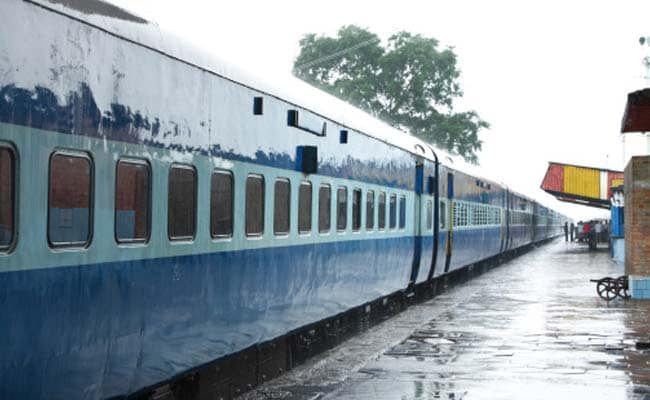
Indian Railways is perhaps the third largest water consumer in the country, Union Railways Minister Suresh Prabhu said.
New Delhi:
Railways will use water released from sewage treatment plants for non-potable purposes like washing trains and platforms.
With water crisis looming large, Railways will also formulate a policy for using water more efficiently in its premises, Railway Minister Suresh Prabhu said today after signing an MoU with Water Resources Ministry for using non-potable water released from effluent treatment plants along the Ganga and Yamuna river areas.
Describing the MoU as a "very good beginning", he said the water released from sewage treatment plants would be used in non-potable purposes like washing trains and platforms.
Water Resources Minister Uma Bharati and senior officials from both ministries were present on the occasion.
After agriculture and power sector, Railways is perhaps the third largest water consumer in the country, Mr Prabhu said.
Railways need water for its colonies, workshops, trains, platforms and horticulture purposes among others.
"Currently we are undertaking water audit exercise and we will formulate a policy for using it efficiently after audits," he said.
Highlighting the importance of preserving water, he said use of non-potable water is in the direction of maintaining ecology balance. We are also trying to run our water recycled plants with solar power."
He said our effort is to reduce energy cost also. Mr Prabhu said Railways has to bear Rs 30,000 crore burden due to the seventh pay commission.
There are water recycled plants at 34 railway stations and more stations will have such plants in future as per the plan, he added.
Speaking at the signing ceremony, Ms Bharti said that co-operation between Ministries of Railways and Water Resources will go a long way to ensure the successful implementation of Clean Ganga Mission.
Referring to the failure of Ganga Action Plan 1 and 2 despite spending more than Rs 4000 crore, Bharati said this time government has learnt the lesson and will not repeat the same mistake.
She said her Ministry has sent similar proposals to the Ministries of Petroleum and Gas and Energy for similar usage of treated water from STP/ETPs.
According to the MoU, Ministry of Water Resources will lay/strengthen the network of Sewage/Effluent Treatment Plants (STP/ETPs) on both sides of Ganga and Yamuna River to prevent the pollution entering these rivers.
The treated water released from STP/ETPs shall be used for various non-potable purposes.
With water crisis looming large, Railways will also formulate a policy for using water more efficiently in its premises, Railway Minister Suresh Prabhu said today after signing an MoU with Water Resources Ministry for using non-potable water released from effluent treatment plants along the Ganga and Yamuna river areas.
Describing the MoU as a "very good beginning", he said the water released from sewage treatment plants would be used in non-potable purposes like washing trains and platforms.
Water Resources Minister Uma Bharati and senior officials from both ministries were present on the occasion.
After agriculture and power sector, Railways is perhaps the third largest water consumer in the country, Mr Prabhu said.
Railways need water for its colonies, workshops, trains, platforms and horticulture purposes among others.
"Currently we are undertaking water audit exercise and we will formulate a policy for using it efficiently after audits," he said.
Highlighting the importance of preserving water, he said use of non-potable water is in the direction of maintaining ecology balance. We are also trying to run our water recycled plants with solar power."
He said our effort is to reduce energy cost also. Mr Prabhu said Railways has to bear Rs 30,000 crore burden due to the seventh pay commission.
There are water recycled plants at 34 railway stations and more stations will have such plants in future as per the plan, he added.
Speaking at the signing ceremony, Ms Bharti said that co-operation between Ministries of Railways and Water Resources will go a long way to ensure the successful implementation of Clean Ganga Mission.
Referring to the failure of Ganga Action Plan 1 and 2 despite spending more than Rs 4000 crore, Bharati said this time government has learnt the lesson and will not repeat the same mistake.
She said her Ministry has sent similar proposals to the Ministries of Petroleum and Gas and Energy for similar usage of treated water from STP/ETPs.
According to the MoU, Ministry of Water Resources will lay/strengthen the network of Sewage/Effluent Treatment Plants (STP/ETPs) on both sides of Ganga and Yamuna River to prevent the pollution entering these rivers.
The treated water released from STP/ETPs shall be used for various non-potable purposes.
Track Latest News Live on NDTV.com and get news updates from India and around the world

